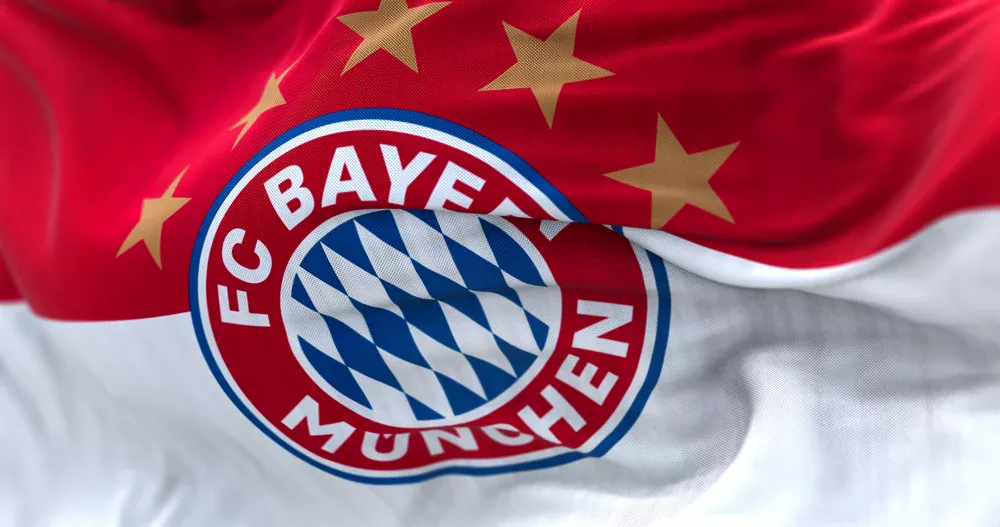Karl-Heinz Rummenigge, the red baron of Bayern Munich
Bayern Munich is, without a shadow of a doubt, the biggest German football club and one of the biggest in the entire world. Their philosophy, their ethos, the way they carry themselves and their massive achievements over the years have proven time and time again that they are one of football's biggest institutions.
An older version of Karl-Heinz Rummenigge in action at an event
A lot of people know him these days mainly for his role as part of the Bayern Munich board, but there is a lot more to this man and today we are going to dwell deeper into Rummenigge's career and who he was as a player. So let's begin.
His early days
Born in September of 1955 in Lippstadt, North Rhine-Westphalia, West Germany, Karl-Heinz Rummenigge showed a lot of promise in football and in the early 70s he was playing at youth level with Borussia Lippstadt. Young Karl-Heinz had proven that he was a very talented dribble and physicality was also quite notorious, which was something that allowed him to stand out from the rest of his teammates.
At first, Rummenigge was more of a support player during the club's successful European Cup campaigns in the mid-70s, but as the decade went on, he became more and more important to Bayern. For example, by the time that the late 70s began, Rummenigge was starting to average at least twenty goals per season across all competitions with Bayern Munich, cementing his role as one of their best players.
His prime years
The early 80s, for all intents and purposes, were Karl-Heinz Rummenigge's prime years as a football player. This was the era where he really started to have a major impact in the game and established himself as one of the best there was in the sport at the time.The 1980/81 season with Bayern, in particular, was the one of his entire career. He scored a grand total of 39 games in 45 matches across all competitions, giving him shouts of best player in the world during those years. And there was a very good argument for that because his goalscoring abilities, his dribbling and his physicality were off the charts at the time.
It was also during this time period that Karl-Heinz Rummenige started to be nominated for the coveted Ballon d'Or award, which was at the time solely handed to European players. He finished as a runner-up in 1979, losing to Hamburg striker and Liverpool legend Kevin Keegan, but he would end up winning the accolade twice in 1980 and 1981, respectively.
Sadly, while Rummenige proved to be a force of nature for Bayern during those years, the reality is that he couldn't do the same thing for his national team. While he was too young to be a part of the German team that won the World Cup in 1974 in home soil, he was a part of the national team that defeated Belgium in the 1980 Euros in Italy, which would end up being his only trophy with West Germany.
However, the same cannot be said about his performances in the World Cup. Rummenige and West Germany would play two World Cup finals in 1982 and 1986, but they would lose both to Italy and Argentina, respectively. The second one was particularly painful for Karl-Heinz as he had scored in the 3-2 defeat against Maradona's Argentina, but it was enough to keep them from winning the trophy.
Aftermath
By the time that the summer of 1984 arrived, Karl-Heinz Rummenige made a bold move and decided to leave Bayern Munich to join Italian giants Inter Milan. At the time, Serie A was becoming the best league in the world and Rummenige wanted to be a part of such a big competition after winning everything with Bayern.However, while his first two seasons had very decent outputs (18 goals each season), the reality is that injuries took a toll on him and Inter were not at their best to compete at the time, which kept the German from winning trophies in Italy, becoming a major source of frustration for him. However, he made an impact as one of the first German players to be a part of Inter Milan, and that would end up inspiring the newer generation to take more risks and go abroad.
In 1987, Rummenige would end up leaving Inter and signed for Swiss side Servette, where he would remain for the rest of his career until retiring in 1989. He had a very good goalscoring record there, with 34 goals in 64 matches across all competitions in two years, but at the time he was already thinking of what to do after being a footballer.
Karl-Heinz Rummenige is one of the finest German players of all time, a deadly goalscorer and he has proven himself as a very capable board director for Bayern Munich, helping strengthen the elements that made this club so great over the years. And while a lot of people these days don't know how good he was, there is always going to be a place in football history for Bayern Munich's red baron.
